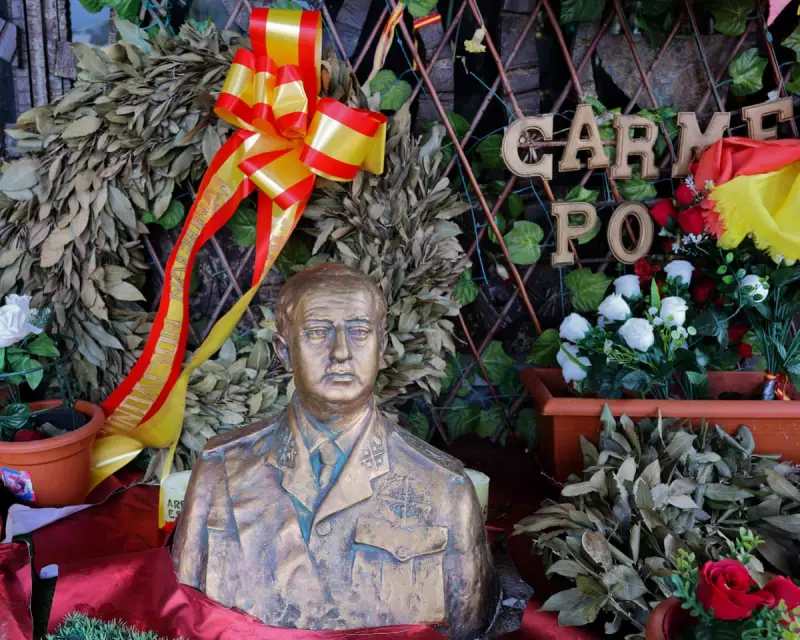
Five decades after Francisco Franco's death, Spain remains deeply divided over the legacy of the dictator whose regime shaped the country for nearly forty years. The 50th anniversary of his passing has reignited debates about how the nation remembers - and forgets - its troubled past.
The Final Resting Place
Six years after being removed from his grandiose tomb at the Valley of the Fallen, Franco now lies in the more modest Mingorrubio municipal cemetery in northwest Madrid. The site holds particular historical significance as it also contains the graves of his close associates, including Luis Carrero Blanco, the prime minister assassinated by a bomb in 1973, and Carlos Arias Navarro, the man who famously announced Franco's death to a grieving nation on television fifty years ago.
Arias's emotional broadcast on November 20, 1975, declared: "Spaniards, Franco has died." He described the dictator as "the exceptional man who, before God and before history, assumed the immense responsibility for the most demanding and sacrificial service to Spain."
Dangerous Historical Amnesia
The current socialist-led government is using the anniversary to highlight Spain's transformation into a modern democracy while warning about the resurgence of far-right politics. Concern is growing about younger Spaniards' limited knowledge of the dictatorship's realities.
Recent surveys reveal alarming trends: approximately 24-25% of Spaniards aged 18-30 expressed indifference to living under an authoritarian regime. Another poll showed 21% considered the Franco era "good" or "very good."
Fernando Martínez López, Spain's secretary of state for democratic memory, attributes this to educational gaps. "There's a whole generation - especially people between their 20s and the age of about 45, who have studied so little of all this," he noted. The new democratic memory law now makes teaching this period obligatory.
The Legacy of Forgetting
Spain's transition to democracy after 1975 involved what became known as the "pact of forgetting" - a tacit agreement to leave the past behind. The 1977 amnesty law granted impunity for crimes committed during the civil war and Franco's regime.
Carlos Hernández de Miguel, author of Franco's Concentration Camps, argues that while necessary concessions were made during the transition, they persisted too long. "That allowed generations and generations of Spaniards to grow up without knowing what had happened in our country during the 20th century," he said.
The political divide continues to hamper reconciliation efforts. The conservative People's party (PP) previously cut historical memory funding and criticises current democratic memory legislation as "digging up grudges." The far-right Vox party dismisses anniversary events as "absurd necrophilia."
Meanwhile, the National Francisco Franco Foundation continues selling merchandise celebrating the dictator's legacy, though the government plans to shut it down.
Unhealed Wounds
The physical scars of the regime remain visible across Spain. While nearly 9,000 victims of Francoist repression have been exhumed in recent years, approximately 11,000 more bodies still await recovery from mass graves. Thousands of others may never be found.
Almudena Carracedo, director of the documentary The Silence of Others, emphasises that Spain still lacks proper accountability. "The important third pillar - justice - is still blocked by the 1977 amnesty law that impedes victims from seeking redress for the crimes they or their families suffered."
She connects historical ignorance to contemporary political trends: "All these youths who now raise their arms in fascist salutes were never really taught their history, and so they celebrate the myths they have heard. This fits a dangerous pattern of nostalgia that you see in many countries, not just Spain."
As Spain marks this difficult anniversary, the nation confronts uncomfortable questions about whether the pact of forgetting has created a generation vulnerable to the very ideologies that once devastated the country.





